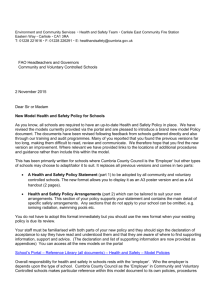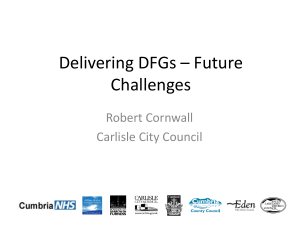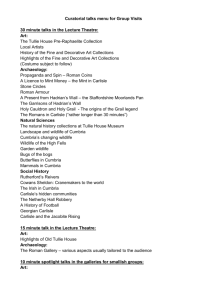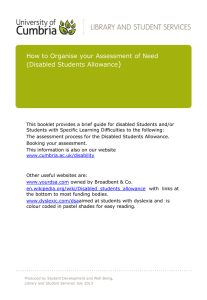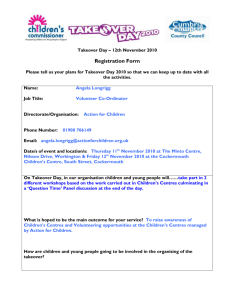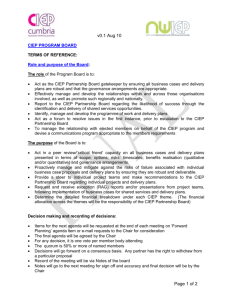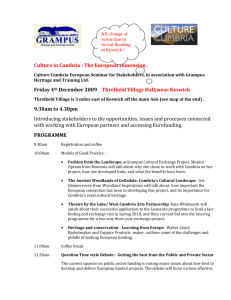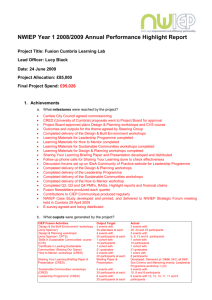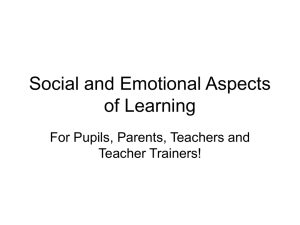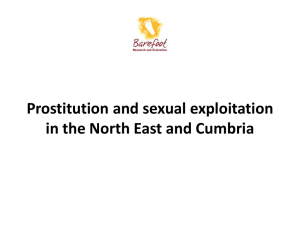Leadership Programme
advertisement
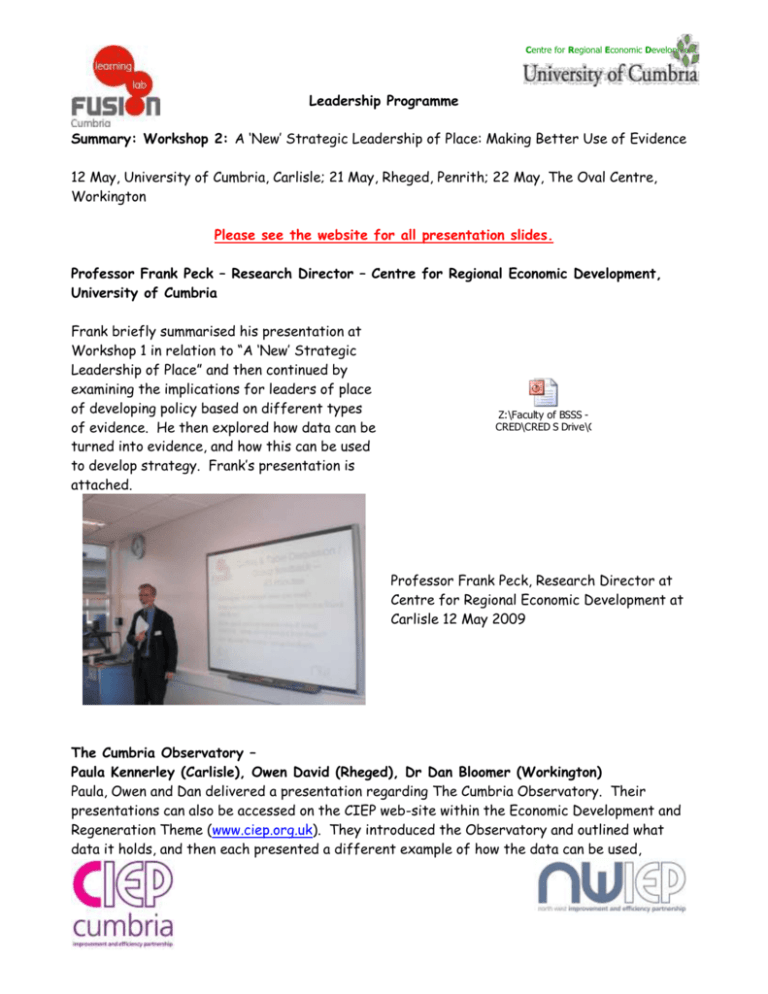
Centre for Regional Economic Development Leadership Programme Summary: Workshop 2: A ‘New’ Strategic Leadership of Place: Making Better Use of Evidence 12 May, University of Cumbria, Carlisle; 21 May, Rheged, Penrith; 22 May, The Oval Centre, Workington Please see the website for all presentation slides. Professor Frank Peck – Research Director – Centre for Regional Economic Development, University of Cumbria Frank briefly summarised his presentation at Workshop 1 in relation to “A ‘New’ Strategic Leadership of Place” and then continued by examining the implications for leaders of place of developing policy based on different types of evidence. He then explored how data can be turned into evidence, and how this can be used to develop strategy. Frank’s presentation is attached. Z:\Faculty of BSSS CRED\CRED S Drive\Current Projects\CIEP\Leadership\Works Professor Frank Peck, Research Director at Centre for Regional Economic Development at Carlisle 12 May 2009 The Cumbria Observatory – Paula Kennerley (Carlisle), Owen David (Rheged), Dr Dan Bloomer (Workington) Paula, Owen and Dan delivered a presentation regarding The Cumbria Observatory. Their presentations can also be accessed on the CIEP web-site within the Economic Development and Regeneration Theme (www.ciep.org.uk). They introduced the Observatory and outlined what data it holds, and then each presented a different example of how the data can be used, including a brief introduction to the Cumbria Profiler which can be accessed via this link: www.cumbriaobservatory.org.uk/Summaries/profiles.asp. The presentation concluded with a discussion of scale, ways in which data can be presented and how it has been used in strategy development. Owen David from The Cumbria Observatory presented at the event held at Rheged on 21 May. Table Discussion Following the first two presentations, there was a table discussion regarding how delegates had used different types of evidence and what the advantages and disadvantages of these may have been. Sarah Mitchell – Regeneration Manager – Regen NE Copeland (Carlisle) Sarah delivered a presentation which illustrated the whole process of developing a project, gathering data using a number of different methods to provide evidence and monitoring progress. Please click to see Sarah’s full presentation. Z:\Faculty of BSSS CRED\CRED S Drive\Current Projects\CIEP\Lead Dr Stephen Connolly – Director – DC Research Making Use of Evidence – Some Lessons from Evaluation Stephen’s presentation focused on the ‘evaluation process’, types and use of evidence. Typical stages of evaluation are: Scoping and Inception; Desk-based (secondary) research – reviews of academic and policy literature and documents, data collection, collation and analysis; Consultations (primary research) with deliverers and partners; Consultations with beneficiaries / users; Producing a robust, objective, independent report of the findings Making recommendations for future and drawing out lessons from the project Stephen highlighted that there is often a ‘gap’ between the ideal evaluation and reality – the pragmatic practitioner recognises that they may be working with limited data and resources in a tight timescale to show the linkages between the initiative being assessed and any changes to the targets. Issues which the evaluator has to consider include: How can the evaluation question(s) be answered? What information and evidence do you need? What information and evidence can you get? How to deal with the counterfactual scenario? How to deal with the issue of multiplicity? How to show contribution towards outcomes? These considerations result in the triangulation of methods/techniques and different emphasis/weight being given to each source of evidence Evidence for an evaluation can be: Any information that enables us to “prove” or “substantiate” statements Not restricted to things which can be counted or measured (though these are important) Includes systematic recording of personal observations, conversations and interactions with partners and members of communities Types of evidence: Secondary Existing Literature and Documents E.g. policy documents Academic articles Action plans Existing Data E.g. No of outputs achieved Financial data Audit data Primary One-to-one consultations – face to face, telephone Group consultations (one-to-many)- face to face/telephone Structured surveys – postal, telephone, online Focus groups/workshops Observations (passive and participant observations) The results of an evaluation can be used in a number of ways, depending on why it was commissioned. However, it is important to maximise the use of the findings and evidence by reflecting on the lessons learned and considering how recommendations can be implemented. The evaluator may be required to disseminate the findings through presentations and in some situations there may be an advocacy role to be filled e.g. between project deliverer / funder. The importance of advocacy and improved dissemination is becoming more widely recognised, and there is a clear role for leaders to interpret evaluation findings and evidence for their purposes. Key activities are specifying what uses the evaluation may be used for from the outset, however the way this is best achieved is contingent on the audience and the purpose of the evaluation. Key points which Stephen concluded with are: Appreciate the full range of sources of evidence that can be used for evaluations Be pragmatic and realistic with what can be achieved, whilst maintaining independence Be flexible with method and techniques adopted Make sure all key people agree purpose of study Ensure that the findings are acted upon Ensure that dissemination occurs PEANuT – Participatory Evaluation and Appraisal in Newcastle-upon-Tyne – Catherine Butcher, Ross Mowbray, Helen Hindmarch We invited PEANuT to contribute to these events, as the Participatory Appraisal and Evaluation methods which they deliver training in are useful in a number of forums, for example they can be used within teams, with partners, and with communities. Please see the attached presentation for details of the techniques. Forcefield Analysis Z:\Faculty of BSSS CRED\CRED S Drive\Current Projects\CIEP\Leadership\Workshop 2 Summary\PEANu A fun way of identifying opinions, in this case whether tourism is a good thing for Cumbria?

